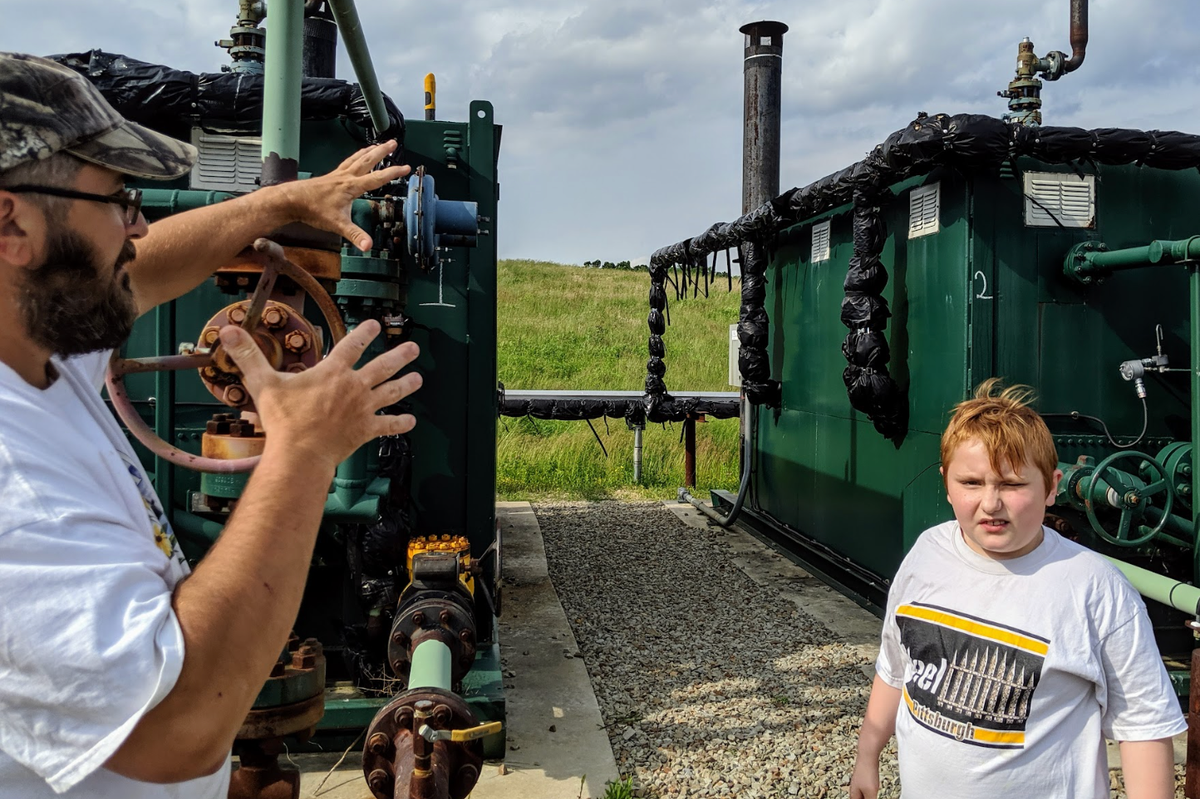
PITTSBURGH—Residents living near fracking wells were more likely to experience childhood cancer, severe asthma attacks and low birth weights, found three long-awaited studies on fracking and health released by the Pennsylvania Department of Health on Tuesday evening.
The three studies, conducted in collaboration with researchers at the University of Pittsburgh’s school of public health, looked at health records and fracking data from 2010-2020 in the 8-county Southwestern Pennsylvania region, including Allegheny, Armstrong, Beaver, Butler, Fayette, Greene, Washington and Westmoreland counties.
Pennsylvania ranks second only to Texas in natural gas production, with most drilling happening in the southwestern part of the state. The state’s health department initiated the research in 2019 after a rash of rare childhood cancers were documented in some of the state’s most heavily-fracked counties. In response to pleas from impacted communities, former Pennsylvania Governor Tom Wolf allocated $3 million for the studies to investigate the health impacts of fracking in the region.
“These studies are not the end of the story,” Ned Ketyer, a retired pediatrician and president of Physicians for Social Responsibility Pennsylvania who served on the external advisory board for the studies, said during a public meeting where the study results were shared. “They’re really just the beginning.”
The findings

The childhood cancer study found that Southwestern Pennsylvania children who lived within one mile of one or more fracking wells were five to seven times more likely to develop lymphoma compared to children who don’t live near fracking wells; and that children living closest to the highest density of wells had the highest risk. The study did not find an association between living near fracking wells and rates of certain other types of childhood cancer, including bone tumors, leukemia and central nervous system tumors.
The asthma study found that people with asthma living within 10 miles of fracking wells were four to five times more likely to experience a severe asthma attack during the production phase at the wells. During the production phase, natural gas and oil flow from deep underground to the surface and are collected. Production happens after well pad preparation, drilling, and hydraulic fracturing, and is the longest-lasting phase in the process. Severe asthma attacks among southwestern Pennsylvanians living near fracking wells most frequently impacted kids between 5 and13 years old.

The birth outcome study found an increased risk of having babies that are small for gestational age — a risk factor for long-term neurological and cognitive issues — among southwestern Pennsylvanians living within 10 miles of fracking wells. It also found an increased risk of low birth weights, another risk factor associated with long-term health problems, during the production phase of fracking. Birth weights got lower as the volume of fracking well exposure increased, the study found.
The research adds to dozens of other studies linking living near fracking wells with various health problems, including cancer, poor birth outcomes and cardiovascular and respiratory problems.
“It’s never a good thing to have your children be canaries in the coal mine,” said Raina Rippel, a longtime community health advocate. “What does all of this mean for the oil field workers, who are getting these exposures more directly, all day, every day?”
Community advocates demand action
Public health advocates in Southwestern Pennsylvania have been calling for better protections from the oil and gas industry since the beginning of the Marcellus Shale boom in the early 2000s. In response to the studies’ findings, they reiterated those requests.
In 2021, Environmental Health News (EHN) published an investigation indicating that fracking chemicals are making their way into the bodies of families living nearby, prompting 35 state lawmakers to call for more testing and better protections for residents living near fracking operations.
During the public meeting where the study results were announced, the Pennsylvania Department of Environmental Health announced that it was launching a continuing medical education program on environmental exposures, had developed a new tool for submitting environmental health complaints, and that it would continue to review cancer data in the region.
“We know these next steps we’re taking do not relieve the pain, suffering and worry that many of you are experiencing,” said the department’s executive deputy secretary Kristen Rodack. “But we’re committing to doing a better job to protect you from environmental health risks in these communities.”
Environmental health advocacy groups including Physicians for Social Responsibility’s Pennsylvania chapter, the Environmental Health Project, the Center for Coalfield Justice, the Mountain Watershed Association and FracTracker Alliance issued a statement prior to Tuesday’s meeting calling for a list of new protective actions.
These requests include asking the government to tighten regulations around all oil and gas activities, increasing non-industry-reported data on pollution and fully funding the Pennsylvania Department of Environmental Protection and the Department of Health. They also called on Pennsylvania Governor Josh Shapiro and Pennsylvania’s legislature to enact the eight recommendations made in a
2020 Grand Jury Report investigating the state’s shale gas industry. Those recommendations include increasing transparency about the chemicals used during fracking, requiring safer transport of those materials and extending fracking well distances from homes, schools, childcare centers, and nursing homes.
Advocates have also asked the state Department of Health to work with federal agencies to conduct comprehensive health impact assessments on shale gas development in affected areas and to work more closely and transparently with these communities.
The Department of Health didn’t respond specifically to these requests, but agency representatives did express a willingness to listen more closely.
“The Department of Health is making a concerted effort to be more transparent and listen to the community more frequently,” said Rodack. “I know the feeling is that we have not done that in the past and I will apologize on behalf of the department for that.”

